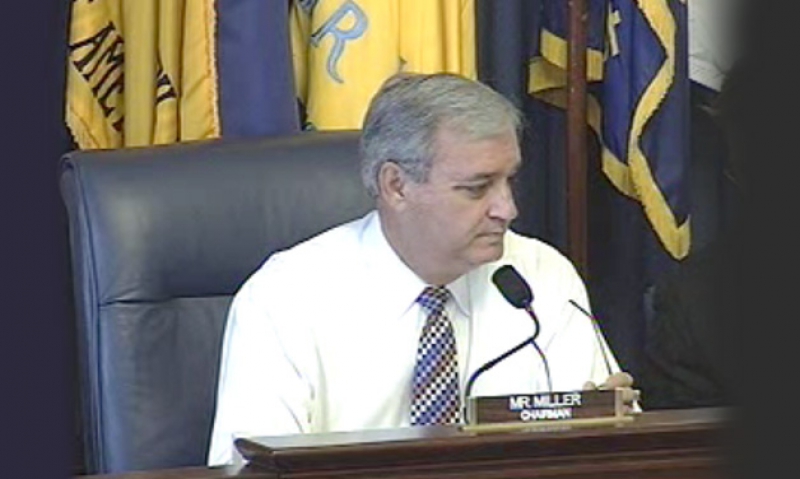
Lawmakers told that VA construction funding among the areas lacking adequate resources.
In testimony before the House Committee on Veterans Affairs (HCVA) on Feb. 15, The American Legion used the analogy of a house for sale to describe the Department of Veterans Affairs’ budget request for fiscal 2013.
Tim Tetz, the Legion’s legislative director, told the committee that the "curb appeal" of VA’s budget request was impressive, including the expansion of programs for homeless, rural, women, and student veterans. New VA medical facilities would be opened, and funding for minor construction would see a 25 percent increase.
But on closer examination, Tetz said the budget request is "not the gem it’s made out to be. Yes, certainly there are some things to celebrate, but there are many more things to be worried about."
One such worry the Legion has is the proposed level of funding for VA construction: only $532 million for major construction and $608 million for minor construction. These figures are much lower than what The American Legion has recommended for fiscal 2013: $5.3 billion and $1.2 billion, respectively.
Tetz reminded the committee that VA has identified the need for more than $50 billion in construction projects over the next decade. "At this pace, the 10-year plan will be done in 50 years. Today’s 30-year-old sergeant who just returned from Djibouti will be a nursing-home resident – if the facility is ever built."
VA construction budgets must be increased, Tetz said, to meet the real needs identified by the Strategic Capital Investment Planning (SCIP) process.
Another sticking point in VA’s budget request is a proposed 7 percent increase in its Medical Care Collection Fund (MCCF). The purpose of this fund is to recover costs of VA medical care for veterans with private health insurance (third-party insurance).
The Balanced Budget Act of 1997 authorized VA to collect third-party insurance for deposit into the MCCF, which could then be used to supplement its federal funding. Under this program, VA bills third-party health insurers for nonservice-connected health care.
VA has been basing its insurance billing rates on amounts that insurers would pay to health-care providers in the private sector (in the same geographic area for the same services).
To pay for the MCCF increase of 7 percent, Tetz said to the committee, "VA points to increased collections and the ability to bill private insurers increased rates, rather than the Medicare rate.
"What happens when VA falls short in MCCF collections?" Tetz asked. "Does Congress have an overdraft protection to make sure the shortfall is covered? Not exactly. VA must scrimp and save elsewhere. Maybe they don’t hire their full staff. Maybe they put off purchasing their upgraded equipment. Perhaps they put off training or other programs."
Tetz went on to break down the proposed 10.5 percent increase in VA’s overall budget. "We’re talking about $13.3 billion. Take away the 9.6 billion of mandatory spending for educational, disability and pension claims. That was earned with the blood, sweat and tears of our military when they served our nation. Now you’re left with a $3.7 billion increase."
Taking budget roll-over authority into account, and pointing out that the $1 billion in funding may never materialize for the newly proposed Veterans Job Corps, Tetz figured the actual real-dollar increase in the VA budget request was about $2 billion.
"Two billion dollars is not quite 2 percent – 1.6, to be exact," Tetz told the committee. "And if the Office of Management and Budget comes in later this year and asks for 2 percent from VA, to meet the sequestration rules, it’s game over."
In his opening remarks as committee chair at the hearing, Rep. Jeff Miller, R-Fla., addressed the issue of sequestration and whether it would affect VA’s budget. He claimed the Obama administration had not clarified the issue, and that no one could say – at this point – whether VA is completely exempt from sequestration.
"We’re in agreement that there is an ambiguity in the law with respect to VA, that requires a clarifying legal decision that only the Office of Management and Budget can make," Miller said. "Because the administration has not clarified the matter, no one can say or will say if VA is completely exempt or not."
- Legislative

